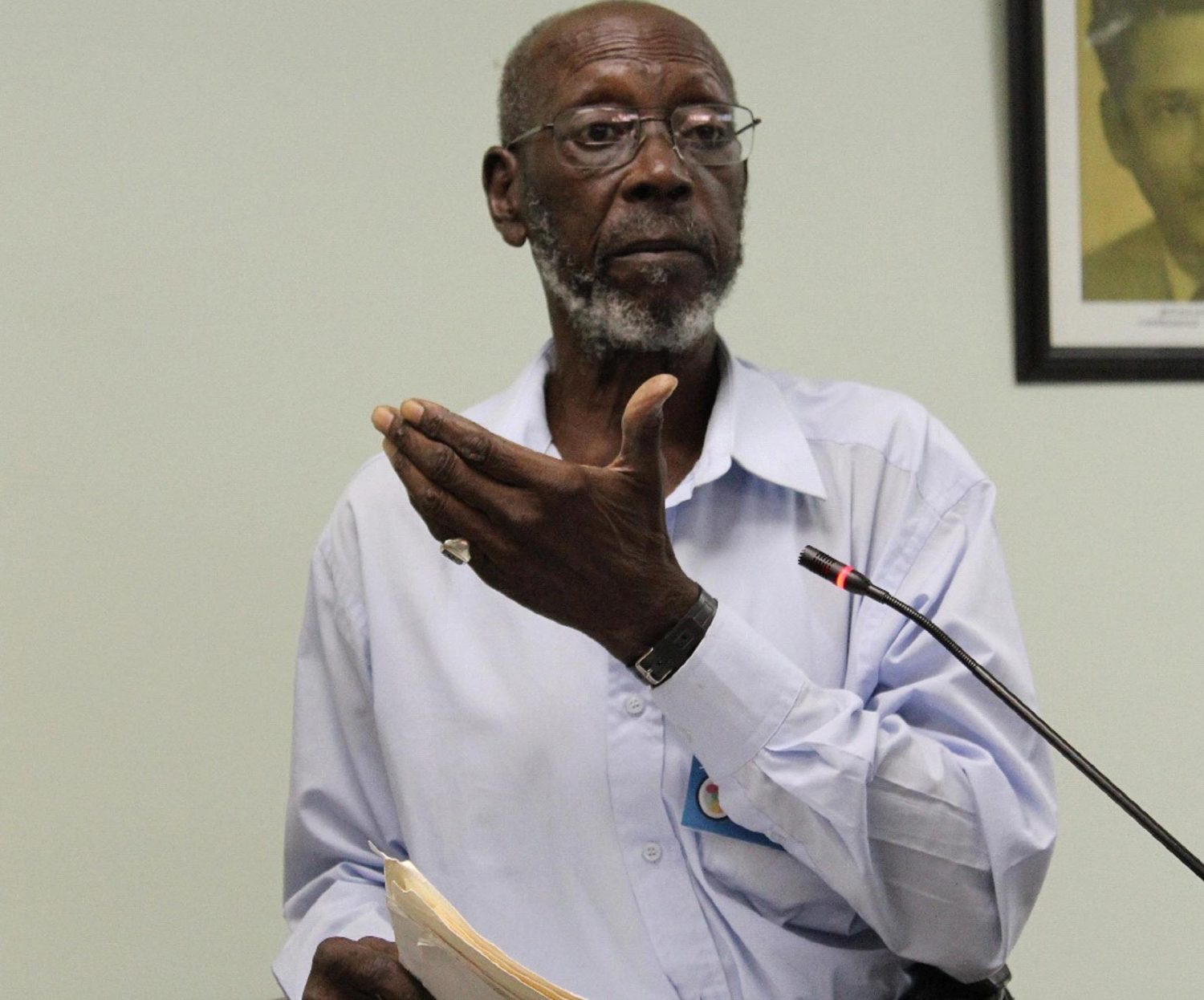Samuel Cordis, 93, a former occupant of Good Hope, East Bank Essequibo, on Tuesday testified that the lands in the area are private.
Cordis, who now resides at Dartmouth, on the Essequibo Coast, made the claim while appearing before the Commission of Inquiry (CoI) established to investigate ancestral land matters.
“…The people of Good Hope seem to believe that Good Hope is government land; it is not. Good Hope belongs to me and people like myself. Twenty one people bought that estate, one opted out…,” Cordis related to the commission from the witness stand.
The witness related that he owns several parcels of land within the community, but is presently occupying 21.868 acres, which he has occupied since 1985. The lands, he said, were purchased by 21 people, one of whom was his grandfather. They were passed down and Cordis is acting as the administrator of his grandmother’s estate.
Good Hope, according to Cordis, was made a land registration area by then Prime Minister Forbes Burnham in 1971.
Commissioner Carol Khan-James pointed out that there is a process for establishing land registration areas, which requires persons to make a claim to lands, and gives others the opportunity to object. Asked why he did not object, Cordis related that he had not been in the country during the time that it was done.
“…Because this is now a land registration area. It’s a different configuration altogether than when your grandparents had the transport and so on,” Commission Chairman George Chuck-A-Sang stated.
“But does that make it government lands, sir?” Cordis questioned.
“Well, I can’t tell you. Government can take over all the lands in this country,” came Chuck-A-Sang’s reply.
“As far as I understand it, I may not understand correctly—correct me if I’m wrong—the government is the administrator of Good Hope, not the owner of Good Hope…,” Cordis stated in reply.
According to the witness, the only land owned by the government in the area is a stretch of land, 77 feet in width, as indicated in a document in his possession.
Although he has since moved out of Good Hope, Cordis related that he still remains the voice of the people there.
“…When there is a problem, the people come to me because they know my standing. I don’t want anything, I’m over 90. I don’t want anything. I just want to see justice done to Good Hope,” he related.
He said that he was told at one point that the Chairman of the Neighbourhood Democratic Council had called a meeting and disparaged him, claiming that he wanted ownership of too much land in Good Hope.
“My interest in Good Hope is strictly because it was my grandfather who initiated the purchase of Good Hope Estate. Good Hope Estate is not government lands, it’s a private estate. And when I returned here, I told the councillors and they agreed. Good Hope is a private estate; it belongs to people like me,” Cordis said.
The other issue raised by Cordis was that of persons occupying lands that do not belong to them, and lands being sold by persons who do not have the authority to do so. He related that family members had sold a property that he held title to, and he had had to file an injunction. “I want it to stop. It’s got to stop,” Cordis said of the injustice. He related that his hope for Good Hope is for it to be occupied by persons who are interested in building the community.






